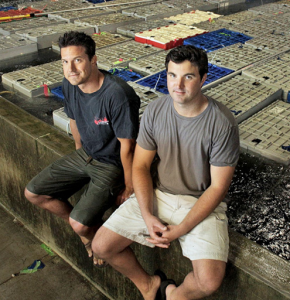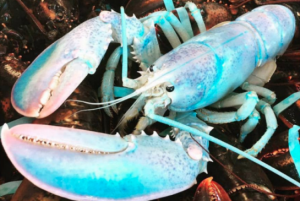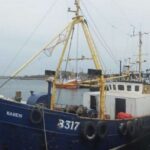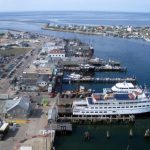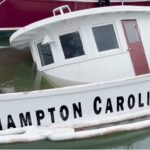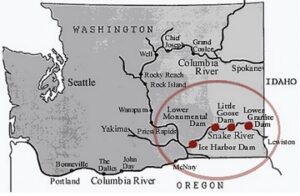Tag Archives: Europe
Farmers, Fishermen & the Far-Right: An Unlikely Alliance in Rural Europe
 Farmers and fishermen in rural Europe form an unlikely alliance with the far-right to protest against globalization, immigration, and policies threatening their livelihoods. This complex narrative unveils the struggle for survival, identity, and sovereignty in an ever-globalizing world. In the heart of France’s rural expanse, a surprising alliance is taking shape, one that threads through the quiet towns across Europe and stretches its roots deep into the soil of global discontent. Farmers, the bedrock of our sustenance, find themselves in an unlikely camaraderie with fishermen and factions of the far-right, united not by ideology but by a shared sense of siege. more, >>click to read<< 07:03
Farmers and fishermen in rural Europe form an unlikely alliance with the far-right to protest against globalization, immigration, and policies threatening their livelihoods. This complex narrative unveils the struggle for survival, identity, and sovereignty in an ever-globalizing world. In the heart of France’s rural expanse, a surprising alliance is taking shape, one that threads through the quiet towns across Europe and stretches its roots deep into the soil of global discontent. Farmers, the bedrock of our sustenance, find themselves in an unlikely camaraderie with fishermen and factions of the far-right, united not by ideology but by a shared sense of siege. more, >>click to read<< 07:03
Fishermen threaten to ‘stop fishing’, take legal action over massive block of offshore wind farms
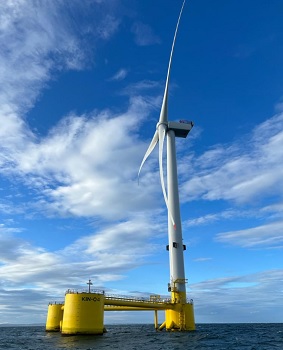 Fishing boat owners in the north are threatening to stop fishing, and file injunctions with Europe, over the proposed creation of a massive block of offshore wind farms, which they have claimed will turn rich fishing areas into comparative deserts. The situation is that six new windfarms are planned for the areas off Sines, Ericeira, Figueira da Foz, Leixões and Viana do Castelo, where a small offshore wind farm has been operating since 2020, with three turbines that have already produced clean energy to serve the equivalent of 60,000 people but have also shown fishermen how fish have effectively ‘vanished’ from the waters. Earlier this year, 15 associations went public with the warning that if two wind farms are sanctioned off Viana do Castelo (as is the plan), authorities may as well issue “a death certificate for fishing”, as all the fish – on which hundreds of boats/ families and local businesses depend will disappear. >>click to read<< 10:08
Fishing boat owners in the north are threatening to stop fishing, and file injunctions with Europe, over the proposed creation of a massive block of offshore wind farms, which they have claimed will turn rich fishing areas into comparative deserts. The situation is that six new windfarms are planned for the areas off Sines, Ericeira, Figueira da Foz, Leixões and Viana do Castelo, where a small offshore wind farm has been operating since 2020, with three turbines that have already produced clean energy to serve the equivalent of 60,000 people but have also shown fishermen how fish have effectively ‘vanished’ from the waters. Earlier this year, 15 associations went public with the warning that if two wind farms are sanctioned off Viana do Castelo (as is the plan), authorities may as well issue “a death certificate for fishing”, as all the fish – on which hundreds of boats/ families and local businesses depend will disappear. >>click to read<< 10:08
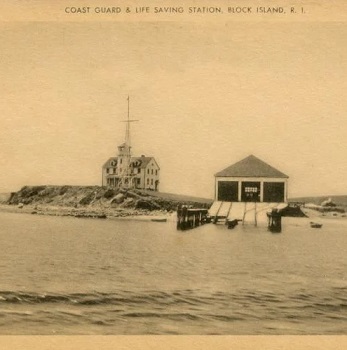
The afternoon during World War II when they made a ‘Beeline for Block Island’
Encounters with unexploded ordinance from World War II is not limited to Europe or decades after the conflict. The waters around Block Island in the spring of 1945 proved this latter point. While the war in Europe was winding down, three fishermen were killed off the southeastern shore of Block Island. These three fishermen were all over the age of 30, which of course resulted from the war taking any of the younger fishermen away to the far corners of the world. As result, a trawler out of Stonington accidentally bringing up an unexploded 550-pound bomb that rested on the ocean bottom some eight miles from Block Island, would not only take three lives but caused 11 children to be fatherless. World War II stands out in the history of human conflict for two main reasons. First, of course, is the unprecedented scale of the conflict, in terms of weapons used, nations involved, and lives lost. Second, and less understood, was the high percentage of civilians killed in the war. This would include the three Stonington fishermen. >>click to read<< 10:48
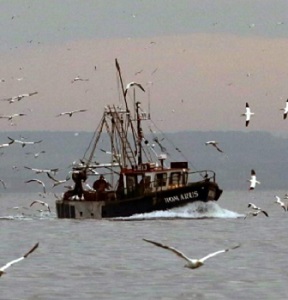
SNP must dump the Greens and ditch HPMAs
In England, marine conservationists have persuaded the Westminster Government to designate around 0.53% of coastal waters as HPMAs in a series of pilot projects. But in Scotland, the area is more than 20 times greater, threatening livelihoods and entire fishing communities. Kate Forbes, the former SNP contender for the job of First Minister, says that “if the proposals go ahead as planned, the rarest species in our coastal areas and islands will soon be people.” Scotland’s fishing communities are not alone in their opposition to new marine conservation measures. In Europe, fishers from many countries are staging a series of protests against European Commission proposals aimed at “protecting and restoring marine ecosystems for sustainable and resilient fisheries”. >click to read< 08:40

Atomic Attraction: Wind Power’s Abject Failure Forces Europe to Embrace Nuclear Power
To call Europe’s rapid embrace of nuclear power ‘passionate’ is not overstatement. Much to the horror of wind and solar acolytes, a growing number of EU members are ready to declare nuclear power is not only clean and green, but wholly sustainable. Wind and solar-obsessed Germans and Brits are watching power prices go into orbit and the pro-renewables camp has been forced to grapple with months-long wind droughts when so-called ‘green’ energy couldn’t be bought at any price. Necessity may well be the mother of invention, but the stark realisation that wind power output can collapse for days and weeks on end is certainly the mother of a renewed attraction to nuclear power. >click to read< 11:16
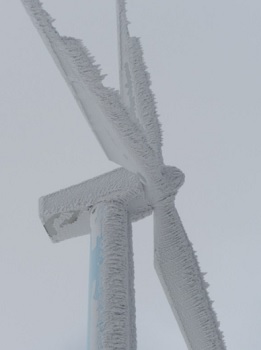
Let Them Freeze: Wind & Solar Generators Couldn’t Care Less About Your Welfare
The wind and solar industries couldn’t care less whether you freeze to death when winter bites across the northern hemisphere and wind and solar output collapse. Solar panels plastered in snow and ice produce nothing; wind turbines frozen solid during breathless, frigid weather produce even less (they actually consume power from the grid to run heating systems meant to prevent their internal workings suffering permanent damage). So, if  you’re sitting freezing in the dark, don’t expect wind and solar power generators to come to your rescue. No, if the lights and power are on this winter, then you ought to raise a glass for the gas, coal and nuclear power generators separating you and your loved ones from a date with hypothermia and, ultimately, the morgue. >click to read< 11:48
you’re sitting freezing in the dark, don’t expect wind and solar power generators to come to your rescue. No, if the lights and power are on this winter, then you ought to raise a glass for the gas, coal and nuclear power generators separating you and your loved ones from a date with hypothermia and, ultimately, the morgue. >click to read< 11:48
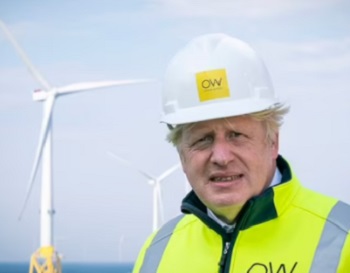
Totally Torched: Low-Cost Offshore Wind Farm Power Claims Go Up In Smoke
Europe’s great wind drought continues, unabated. Adding to the wind industry’s woes, its claims that offshore wind power is ‘free’ and getting cheaper all the time have been totally torched – again. Over the last two years, Andrew Montford has been keeping a close eye on the financial reports produced by the UK’s offshore wind power outfits. What the books reveal runs counter to the spin and propaganda dished up in the media about the cost of offshore wind power. Andrew provides another helpful update,,, >click to read< 11:40
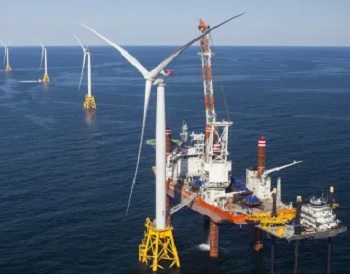
Experts Slam Biden’s Plan To Build Taxpayer-Funded Offshore Wind Farms
Energy experts criticized President Joe Biden’s plan to prioritize wind farms, arguing wind power is costly, inefficient, and indirectly produces greenhouse gas emissions.,, On average, however, offshore wind produces just 45% of its energy capacity,,, “It is amazing that they’re touting wind at the very time when the EU is going through an energy crisis, in which they’re shutting down factories, fertilizer production, agricultural processing because their wind isn’t working,” ,,,“That the Biden administration is out there touting it and we want to go in the same direction they’ve gone in, I don’t know, you can’t make this stuff up,” >click to read< 21:08 Britain to Downgrade Renewables, Embrace Nuclear Power – In the wake of Britain’s recent catastrophic wind drought, the Boris Johnson administration appears set to embrace nuclear power as their main strategy for achieving net zero. >click to read<
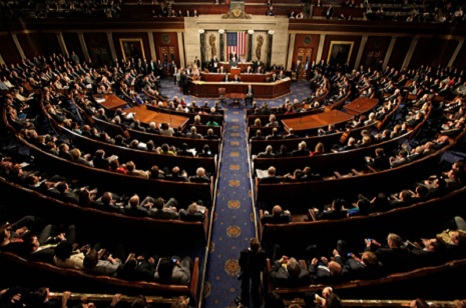
Watching Wind And Solar Fail To Power The World Economy
You don’t have to be any kind of a genius to figure out that wind and solar generation are never going to supplant fossil fuels in powering the world economy. Thankfully the U.S., home of fracking, has mostly been spared the huge natural gas price spikes that have befallen Europe and Asia. If the dopes occupying the White House and leading the Congress had their way, we would be suffering the fate of those places and worse. And oil? It’s suddenly trading at $80 and more per barrel, the highest price since 2014. >click to read< 11:28 U.K. Turns to Coal as Low Wind Output Increases Power Prices – U.K. power prices rose after a coal power plant switched on Monday to make up for a shortfall in wind generation and limited flows on two power cables to Ireland. >click to read< 14:32
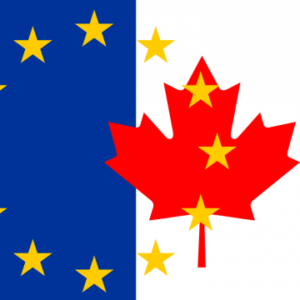
Trade minister says she’ll keep eye on U.S. probe of Canadian lobster industry
The Canadian industry gained most of the Chinese market that the Americans lost after China slapped a 35 per cent tariff on U.S. lobster exports. Canada also saw its lobster exports grow in Europe after it signed the Comprehensive Economic and Trade Agreement, or CETA, with the European Union, giving it a tariff advantage over its U.S. competitors. The Trump administration, however, has recently signed an agreement with China that removes the 35 per cent tariff. And a separate deal with Europe also removed tariffs on American lobsters that had provided the Canadian industry an advantage. Executive Director Geoff Irvine (Lobster Council of Canada) said Monday the lobster industries of Canada and the United States are now back on an even playing field. >click to read< 07:17
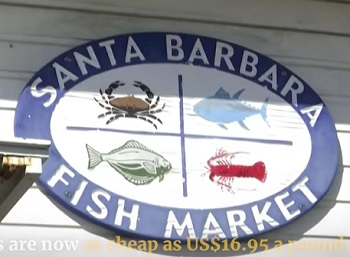
Coronavirus: Global lockdown to hit China’s supplies of steak, lobster, wines
Just over a month ago, supply chains in China were thrown into chaos as trucks and planes delivering goods to the world came to a standstill. Now, China’s economy is moving back towards capacity, while the supply shock from the coronavirus pandemic is beginning to affect many Western countries, as they look to contain the virus’ spread. But this second round of supply shock enveloping countries around the world may mean China’s growing middle classes find themselves strapped for premium overseas food such as meat and dairy products,,, Video, >click to read< 11:26
Pacific states say tuna talks making slow progress
 Pacific island states expressed frustration Wednesday at a lack of progress in talks aimed at protecting the region’s valuable tuna resources, accusing powerful faraway fishing nations of stalling on conservation measures. The islands want the annual meeting of the influential Western and Central Pacific Fisheries Commission (WCPFC) in Samoa to cut tuna quotas in the region, which is the source of almost 60 percent of the global catch. Read the rest here 09:36
Pacific island states expressed frustration Wednesday at a lack of progress in talks aimed at protecting the region’s valuable tuna resources, accusing powerful faraway fishing nations of stalling on conservation measures. The islands want the annual meeting of the influential Western and Central Pacific Fisheries Commission (WCPFC) in Samoa to cut tuna quotas in the region, which is the source of almost 60 percent of the global catch. Read the rest here 09:36
Showdown looms for lucrative Western Pacific tuna industry
 The future of the world’s largest tuna fishery will be decided at a meeting in Australia this week, with Pacific island nations demanding tighter controls on a catch now worth US$7.0 billion a year. A record 2.65 million tonnes of tuna was hauled from the Pacific last year, accounting for 60 percent of the global catch, with most of the fishing conducted by so-called “distant water” fleets from as far afield as Europe, the United States, China, Korea and Taiwan. Island nations, many of which rely on tuna for a significant portion of their income, fear stocks are becoming unsustainable and want action at the December 2-6 meeting of the Western and Central Pacific Fisheries Commission (WCPFC) in Cairns. [email protected] 08:16
The future of the world’s largest tuna fishery will be decided at a meeting in Australia this week, with Pacific island nations demanding tighter controls on a catch now worth US$7.0 billion a year. A record 2.65 million tonnes of tuna was hauled from the Pacific last year, accounting for 60 percent of the global catch, with most of the fishing conducted by so-called “distant water” fleets from as far afield as Europe, the United States, China, Korea and Taiwan. Island nations, many of which rely on tuna for a significant portion of their income, fear stocks are becoming unsustainable and want action at the December 2-6 meeting of the Western and Central Pacific Fisheries Commission (WCPFC) in Cairns. [email protected] 08:16






